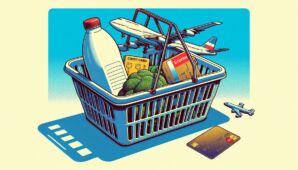IASH Evolves Its Auditing Process, As It Looks To Offer Real-Time Protection For UK Brand Advertisers
by Ciaran O'Kane on 10th Nov 2010 in News


As display advertising goes real-time and becomes more automated, there has been increasing speculation in the UK display space as to what the future role of IASH might be? IASH has over the last five years established itself as the brand advertiser's most trusted safety auditor. But times are changing. In a world increasingly dominated by automated trading, DSPs, SSPs, ad exchanges and millisecond ad trades how relevant will IASH be in the process of ensuring brand safety. Julia Smith, Head of IASH, spoke to ExchangeWire this week about the future of IASH and what part it will play in this new real-time environment.
IASH has long been the benchmark for brand safe ad inventory. But how relevant is IASH in a real-time environment? Are you going to accredit RMX, Adx, Rubicon, Ameld et al?
JS: IASH 1.0 was relevant for the last 5 years and had a significant effect on increasing brand safety. It was right for the trading models that existed which were predominantly the ad networks, brokers and sales houses. As we all know, we have seen more change over the last 12 months than potentially has happened over the last 15 years and it is because of these changes that IASH 2.0 is being created.
IASH 2.0 will incorporate technology into the audit process and therefore will offer a higher and more proactive level of protection for brands – in real time. The use of technology rather than a paper trail has also enabled IASH to open up to cover DSPs, SSPs and trading platforms. From Feb 2011, there are number of companies within these areas who will look to seek accreditation.
How is IASH going to re-position itself to meet the requirements of the real-time display market?
JS: CV tools work in real time – scraping the page before the ad is delivered. if the content does not include IASH defined barred content, then the ad will be delivered. All of this occurs in real time and works in line with the RTB and RTS technologies.
I’m wondering how a monthly or quarterly audit will be able to protect brands when ad inventory is now being traded in a matter of milliseconds. How are you going to ensuring brand safety for your members in the automated display channel?
JS: Again, CV tools prevent an ad being delivered on inappropriate content in real time. The audit carried out by ABCe on a monthly basis will take a selection of campaigns from the agencies per member and run those through a CV tool – this will ensure that the CV tool was implemented correctly and that any inappropriate page URLs were blocked. There is no doubt that the new audit process offers a more effective and proactive approach to brand safety – and works within the automated display channel.
Can you explain how IASH is currently accrediting ad verification (or content verification) suppliers? What are the criteria for an IASH anointed ad verification partners?
JS: The minimum set of requirements outlined by IASH insists that the Product must prevent IASH members' ads appearing on Barred Content. The product must also be configurable on a publisher-by-publisher basis, it must retain raw data for at least 90 days and the product must either operate in real time or with a maximum agreed delay (and explain why the latter is appropriate).We are then also looking at scalability, latency, reporting, features and confidentiality.
ABCe will be responsible for accrediting the suppliers and will receive an ABCe kitemark on successful completion of the testing process. IASH members will then have the option to either choose a CV tool to integrate or can self vet their sites using another method. Either way, ABCe will be using an accredited CV supplier to audit the members on a monthly basis.
Will these ad verification vendors ultimately replace IASH? Could IASH be inadvertently disintermediating itself?
JS: No. Ad verification tools will enhance the IASH audit process – not replace it. Anyone who is responsible for delivering advertising onto third party sites has a responsibility to provide brands with the highest possible level of safety. IASH members are at the fore front of this process and will continue to maintain a strong position with brands and agencies.
What if an ad verification supplier decides against IASH accreditation? Will you instruct your members not to use it?
JS: Members have the option to use either an accredited CV supplier or can choose to use either an in-house solution or a non-accredited supplier. However, the IASH audits carried out by ABCe will use an accredited CV supplier to audit all IASH members in the same way.
Do you think that IASH will continue to be relevant to brand marketers in the coming years? How are you continuing to address the concerns of brand marketers?
JS: IASH has close relationships with and is endorsed by ISBA and IPA who represent agencies and brands. We continue to work with brands and agencies to deliver the highest level of protection for their campaigns and to remain relevant in the ever changing digital advertising landscape.
IASH members are expected to increase dramatically in 2011, showing that IASH is both relevant and effective and provides an essential service for the industry.








Follow ExchangeWire